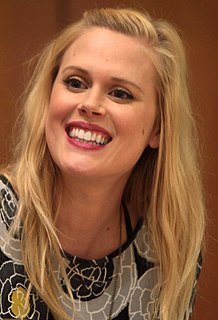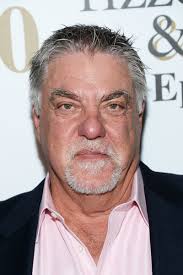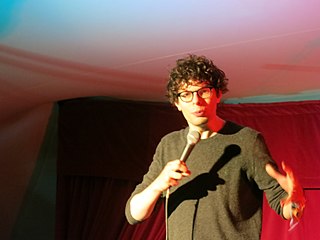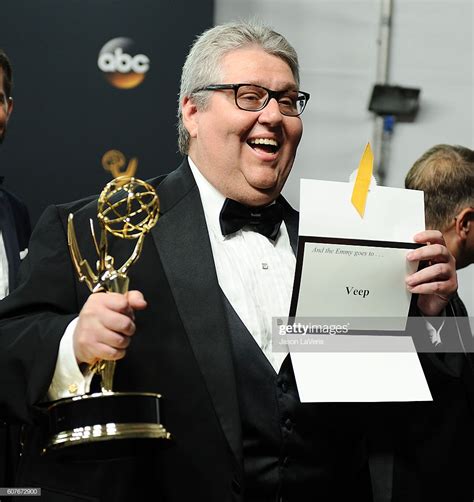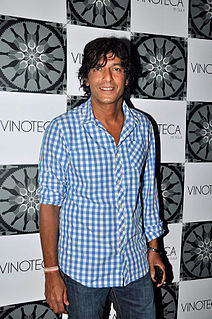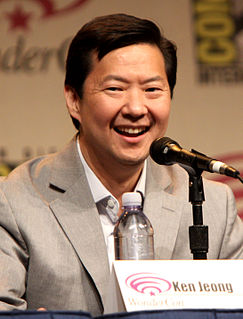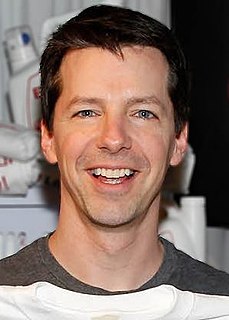A Quote by Garrison Keillor
Some people think it is difficult to be a Christian and to laugh, but I think it's the other way around. God writes a lot of comedy, its just that he has so many bad actors.
Related Quotes
Because I produce a comedy festival and because I write and all of that stuff, I've seen the relationship that actors can create, in a bad way sometimes, with the rest of the people they work with. I just want to be a good representation of, 'Actors are great! They're not what some people might think they are.'
I laugh a lot in horror films. If I'm scared in a horror film, I try to think about what's scaring me... particularly, if it's a bad movie, but something they're doing still works. It's the same way I look at comedy. I've always had an intellectual view of comedy, and what makes people laugh, and how does it work.
The first purpose of comedy is to make people laugh. Anything deeper is a bonus. Some comedians want to make people laugh and make them think about socially relevant issues, but comedy, by the very nature of the word, is to make people laugh. If people aren't laughing, it's not comedy. It's as simple as that.
Comedy is more difficult than drama. I think it's really difficult to make someone laugh because people have very different comedic sensibilities. In drama, you can get away with being a great actor and surrounded by great actors and having good writing. But in comedy you have to listen and you have to perform with a certain rhythm, because if you don't, it's like playing a wrong note in the orchestra and you can hear the off key and it will fall flat and you won't get that instant response.
The actor has to have some degree of craft, along with the talent. No one tries to laugh except bad actors. No one tries to cry except bad actors. How a character hides his feelings tells us who he is. Most people don't know that, and most actors don't do that. Therefore, there are a lot of actors who put me to sleep, that are considered good actors, but they're predictable and boring. I know how the scene is going to end before it ends.
I think that for a lot of actors - especially American actors - to get line readings and to be told and have your director literally act out the part for you is sort of discouraging in a way. It's a very Eastern European thing to do - a lot of directors that I worked with in Russia did that as well. And, I never took that as an insult, as many actors tend to do. To me, I think it's just offering a certain energy - offering their flavor - and, instead of trying to sort of decode and communicate it to you, they just show you their flavor of what it should be.

